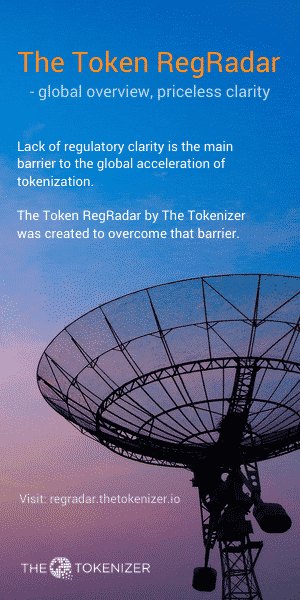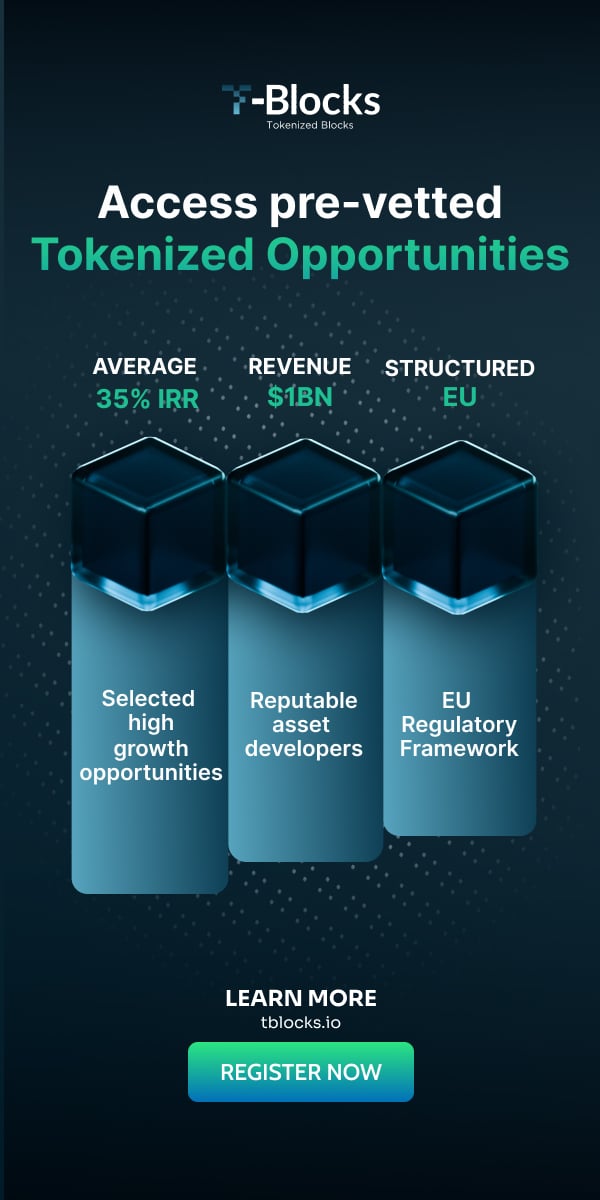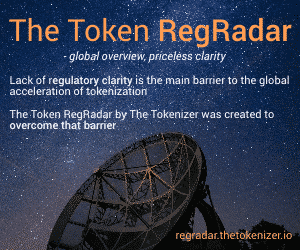Unleashing Blockchain’s Potential to Solve The Entertainment Industry’s Toughest Challenges
From Fair Compensation to Deep Fake Menace, Blockchain’s Role in Empowering Artists
By Tal Elyashiv, SPiCE VC.
The entertainment industry has undergone a massive transformation in the last decade. Digital streaming services like Netflix, Hulu, and Amazon Prime Video have revolutionized the way people consume and access media, providing more convenient and cost-effective options for watching movies and television shows. In fact, Streaming services are by far the largest sector of the U.S. Media and Entertainment industry. In total, annual video revenue is projected to reach $316.1 billion in 2023 and is poised to reach $462.9billion by 2027. For context, other major sectors include Music ($43 billion), Movies ($91.83 billion), Gaming ($160 billion), TV Broadcasting ($63.2 billion), and Book Publishing ($26.8 billion). Of these sectors, it would take four of them to equate to the same size as the Streaming sector.
Additionally, the rise of mobile devices have made mobile access to music and videos pervasive, while the shift towards more interactive content, like virtual reality gaming, are becoming increasingly popular. By 2025, Virtual Reality (VR) and Augmented Reality (AR) in the media and entertainment industry is expected to reach $67.6 billion.

Overall, the entertainment industry has become much more diverse, with a wider range of content available to consumers and new technologies making it possible to experience that content in new and innovative ways. But with all the positive change, new industry challenges have emerged. The studio, streaming, artist and fan relationships have become murky. Artists and creators have lost much of their ability to maintain direct relationships with fans – along with commanding a much smaller share of the revenue produced. This is complemented by challenges protecting intellectual rights, ad fraud, and the latest challenge – the “deep fake.”
In an era where technology constantly pushes boundaries, the music and entertainment industry finds itself grappling with numerous challenges. Enter blockchain. The decentralized digital ledger that underpins cryptocurrencies like Bitcoin, that has gradually emerged as a powerful tool with the potential to disrupt various sectors. Its immutable and transparent nature, coupled with the ability to create secure, decentralized ecosystems, presents a unique opportunity for the music and entertainment industry to tackle long standing issues and pave the way for a fairer and more authentic landscape.
Fighting Fraud and the Deep Fake Debacle
The “deep fake” (literally) heard round the world, was recently produced anonymously using generative AI that featured the shockingly realistic voices of Drake and the Weeknd. At first, listeners rejoiced as this never-before but always-desired collaboration spread like wildfire online. Little did they know that they (and the artists) were being duped. When all was said and done, the track called “Heart on My Sleeve,” reached more than 15 million views on TikTok, 275,000 views on YouTube and over 600,000 streams on Spotify in just under five days.
Deep fakes have emerged as a significant concern for the entertainment industry because these deceptive creations pose a range of problems, from eroding trust and authenticity to damaging artists’ reputations. However, blockchain technology, with its ability to verify and authenticate content, holds the key to detecting and preventing the proliferation of deep fakes, safeguarding the industry’s integrity.
The scourge of ad fraud continues to plague the advertising industry, costing consumers and brands an estimated $100 billion by 2023. From bot traffic to deceptive ads, the current system is riddled with inefficiencies and wasted resources. Blockchain technology presents an opportunity to combat this issue head-on. By leveraging its transparency and trust mechanisms, blockchain can eliminate click fraud, reward ad viewers for their attention, and provide a verifiable trail for tracking ad spend. Moreover, blockchain applications can empower creators to verify identities, control content sharing, and retain ownership of their digital assets, addressing the rampant issue of digital content piracy.
One of the ways blockchain achieves this is through digital fingerprints, or “hashes,” that uniquely identify an artist’s original work. These hashes can be stored on the blockchain, acting as a tamper-proof signature that verifies the authenticity of content. As a result, when a deep fake emerges, the blockchain can quickly expose it as a fraudulent creation, protecting artists from reputational damage and fostering a more trustworthy ecosystem.
Blockchain’s potential lies in its ability to verify and authenticate content through cryptographic techniques. By establishing a decentralized network for verifying the authenticity of artists’ work, blockchain can create an immutable record that distinguishes genuine performances from deep fakes. This ensures that audiences can trust the content they consume, safeguarding artists’ reputations and preserving the integrity of their craft. Moreover, blockchain applications can empower creators to verify identities, control content sharing, and retain ownership of their digital assets, addressing the rampant issue of digital content piracy.
Several initiatives are already exploring blockchain-based solutions to tackle deep fakes, which comes as a relief as artists grapple with what to do next.
Rights, Royalties and the Rethink of Artists in a Web3 Era
The entertainment industry has long been fraught with tension between writers and studios, resulting in periodic writers’ strikes that disrupt the production of television shows, films, and other creative works. The current system of rights and royalties management is rife with complexities and inefficiencies, leaving artists with only a fraction of their potential earnings.
Blockchain, with its smart contract capabilities, can revolutionize this landscape. By automating royalty payments through immediate, accountable transactions, artists can receive fair compensation for each view, stream, or download of their work. Moreover, smart contracts can streamline content tracking across complex workflows, ensuring transparency and accuracy in the distribution of royalties. Notably, the rise of non-fungible tokens (NFTs) on platforms like OpenSea has provided a new avenue for artists to earn royalties each time their art is resold, creating a sustainable revenue stream.
Moreover, blockchain can facilitate the implementation of rights management systems, enabling writers to retain control over their work and negotiate fair deals. By recording and enforcing ownership rights through blockchain, writers can protect their creations from unauthorized use and exploitation. This gives them the ability to negotiate contracts with studios on more equitable terms, fostering a healthier relationship between writers and the entertainment industry.
To fully realize the potential of blockchain in resolving writers’ strike concerns, collaboration among industry stakeholders is crucial. Studios, writers’ guilds, and technology innovators need to work together to establish standardized practices and protocols for blockchain implementation. This includes defining digital rights management frameworks, resolving copyright issues, and developing user-friendly interfaces that cater to the needs of writers.
NFTs and Creating Direct-To-Fan Relationships
Non-Fungible Tokens (NFTs) are revolutionizing the entertainment industry, unlocking new possibilities for artists and creators. With NFTs, artists can establish direct relationships with fans, bypassing intermediaries. This shift in power disrupts the dominance of platform providers and empowers artists to regain control over their work.
NFTs also enable unique fan experiences, fostering deeper connections. Artists can offer limited-edition collectibles or exclusive interactions, allowing fans to own digital memorabilia and participate in virtual events. NFTs facilitate unprecedented fan engagement and strengthen artist-audience relationships.
Take Kings of Leon, who embraced the engaging fan experience that NFTs offer earlier than most. The band released its 2021 album “When You See Yourself” as an NFT, which offered fans exclusive content and experiences like a digital download, limited-edition vinyl and “enhanced media.”
Beyond NFTs, the blockchain-based Metaverse is playing a major role in fan-to-artist connections. Harry Connick Jr. leveraged the power of digital fan experiences with NFTs and the Metaverse by launching The Neutral Ground. The goal of the platform is to create a community of music lovers that can engage on a deeper level and, in turn, get access to content and experiences that they otherwise have never been able to get, including piano lessons from Connick Jr. himself.
But the impact of NFTs goes beyond engagement:
Authenticity and Ownership: NFTs provide verifiable proof of ownership for digital assets. Artists can tokenize their work, establishing ownership on the blockchain, enhancing authenticity, and increasing the value of rare digital assets.
Content Monetization: NFTs create new revenue streams for creators by enabling direct sales of digital content. Artists can sell NFTs representing music, artwork, or exclusive experiences, reaching a global audience without intermediaries. NFT sales generate ongoing royalties for artists, even on the secondary market.
Enhanced Licensing and Royalty Management: NFT platforms streamline licensing processes and automate royalty distribution through embedded smart contracts. Creators receive fair shares of revenue from NFT sales and usage, ensuring transparency, reducing disputes, and simplifying tracking.
Intellectual Property Protection: NFTs offer a secure mechanism for protecting intellectual property rights. By tokenizing and timestamping works on the blockchain, creators establish permanent ownership records, enabling copyright enforcement and safeguarding against plagiarism.
Over the past few years, early artist adopters of blockchain-based NFT technology jumped on the trend and reaped the benefits in a major way. Since 2021, independent artists have earned millions from primary NFT sales, including Beeple who sold his Days of Our Life NFT for $69 million, the most expensive digital art ever. Additionally, musicians like 3LAU, and Snoop Dogg have embraced NFTs, offering unique perks and experiences to fans. NFT marketplaces like OpenSea, Blur, and SuperRare are gaining popularity, along with specialized platforms like Audius and Catalog for music NFTs. This shift toward NFTs has the potential to benefit all industry participants, marking a tokenized revolution in entertainment.
While these pioneering artists arrived early at the Web3 table, since their arrival, the entertainment industry has welcomed a variety of innovative companies and platforms ready to transform this space.
Promising Blockchain Projects in Entertainment Already Underway
While these pioneering artists arrived early at the Web3 table, since their arrival, the entertainment industry has welcomed a variety of innovative companies and platforms ready to transform this space. Take SingularDTV. Built on Ethereum, SingularDTV uses smart contracts for transparent revenue distribution, providing a reliable system for creators to earn from their creations. There’s also the TaTaTu streaming platform, which rewards viewers with TTU tokens for engagement. Viewers can use tokens to access premium content or exchange them for fiat currency, creating a more engaging streaming experience and offering creators an alternative revenue stream. Additionally, MovieBloc, connects filmmakers directly with audiences and ensures fair revenue distribution using smart contracts. Creators can also secure funding through the token-based crowdfunding platform, granting them more control and fair compensation.
For gaming, a well-known brand from the 1980’s is back and has totally reinvented itself. Atari is teaming up with Enjin to develop blockchain-based versions of its classic games. Players can earn and trade digital assets within the games, creating new revenue streams for both players and creators. Ubisoft is also leveraging blockchain to amplify its creating immersive gaming experiences. Their upcoming game, Rabbids Token, allows players to collect and trade NFTs, giving players true ownership of in-game assets. Ubisoft is also introducing mechanisms for players to earn in-game currency by contributing to the game’s ecosystem, enhancing gameplay experiences.
The Next Great Era Evolution of in Entertainment is Here
Blockchain technology and Web3 are driving a transformative shift in the entertainment industry, comparable to the pivotal moments when silent movies gained sound and films transitioned from black and white to color. Similarly, for the music industry this moment is as disruptive as the arrival of the MP3 and the complete digitization of recorded music.
This technological revolution is ushering in a new era of possibilities, empowering creators and revolutionizing the way content is created, distributed, and consumed. Blockchain’s decentralized nature ensures transparency, security, and immutability, providing a trusted foundation for artists, filmmakers, musicians, and other creators to protect their intellectual property, establish ownership rights, and receive fair compensation for their work. With the integration of smart contracts and non-fungible tokens (NFTs), artists can unlock new revenue streams, engage directly with fans, and offer unique, limited-edition digital collectibles and experiences. Blockchain and Web3 are democratizing the entertainment landscape, fostering innovation, creativity, and collaboration, and enabling fans to play an active role in shaping the future of the industry.
Read other stories: CITD to Issue HK$100 Million Bonds Utilizing DLT
Republic to make US$5.25 million investment in INX and enter into collaboration agreement













